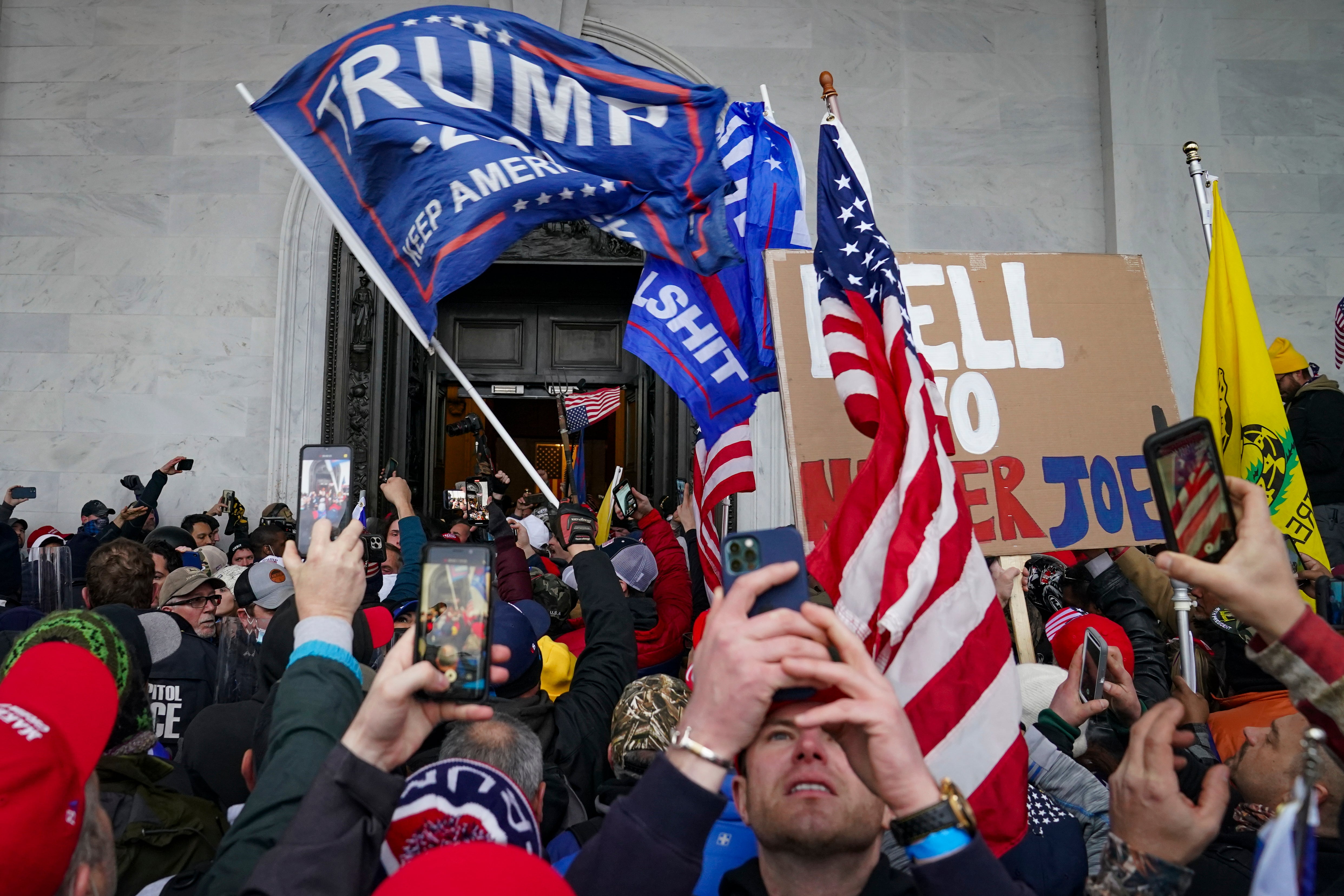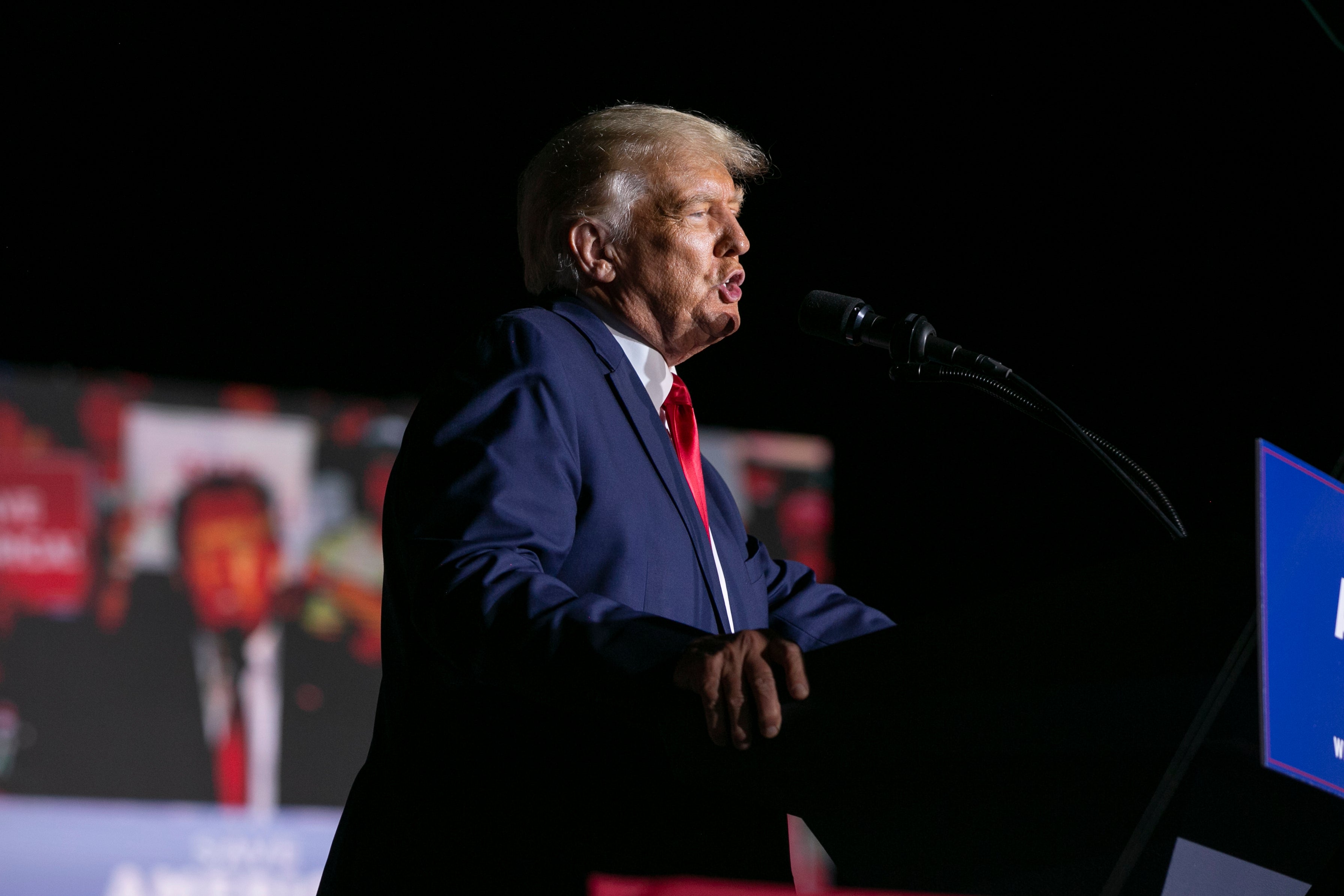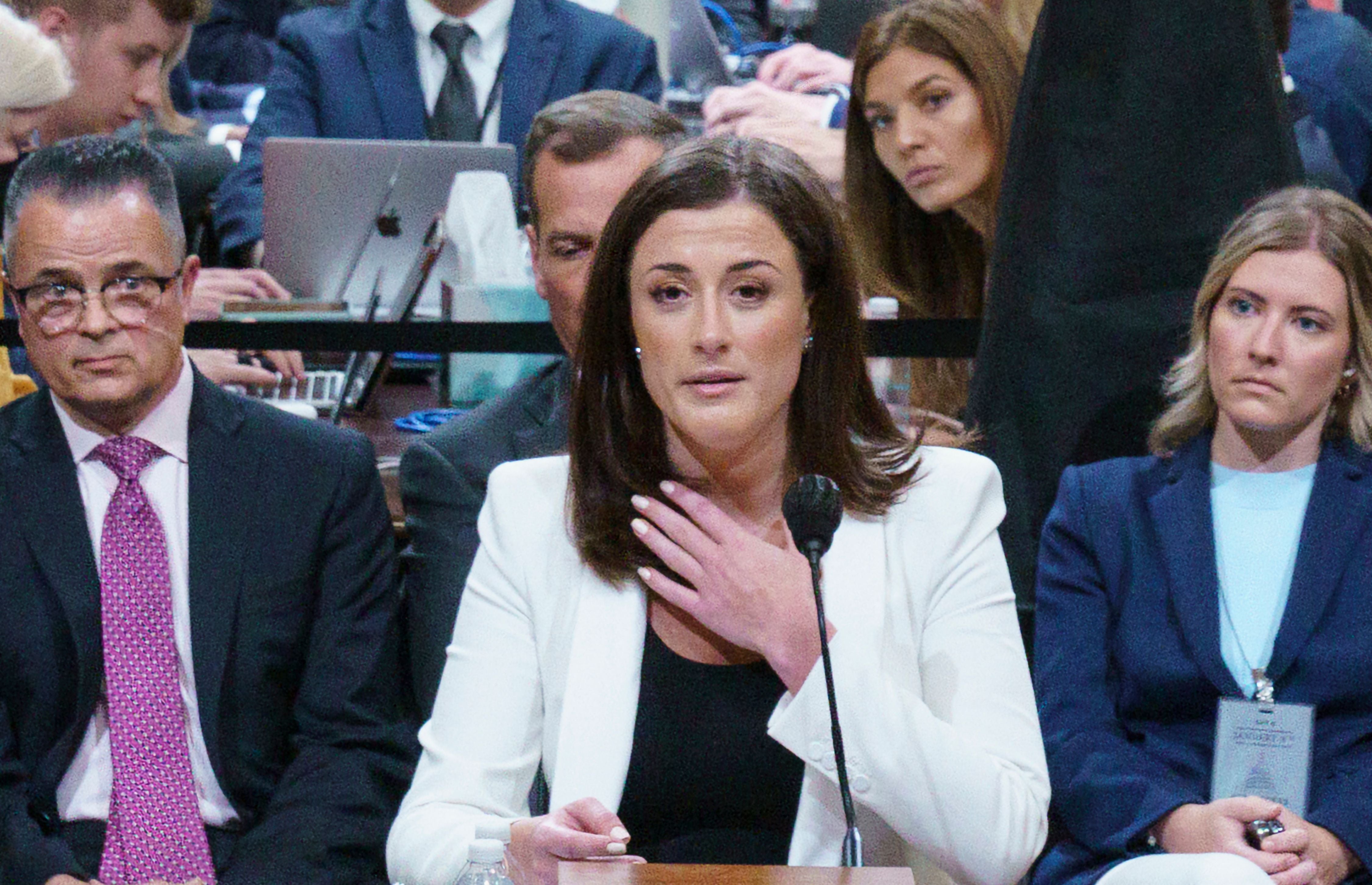The January 6 hearings revealed stunning details of Trump’s attempted ‘coup’. Can ‘surprising’ new material help committee end with a bang?
Hearings turned into must-watch viewing – and now they are back, writes Andrew Buncombe


Your support helps us to tell the story
From reproductive rights to climate change to Big Tech, The Independent is on the ground when the story is developing. Whether it's investigating the financials of Elon Musk's pro-Trump PAC or producing our latest documentary, 'The A Word', which shines a light on the American women fighting for reproductive rights, we know how important it is to parse out the facts from the messaging.
At such a critical moment in US history, we need reporters on the ground. Your donation allows us to keep sending journalists to speak to both sides of the story.
The Independent is trusted by Americans across the entire political spectrum. And unlike many other quality news outlets, we choose not to lock Americans out of our reporting and analysis with paywalls. We believe quality journalism should be available to everyone, paid for by those who can afford it.
Your support makes all the difference.“January 6 was the culmination of an attempted coup, a brazen attempt, as one rioter put it shortly after January 6, to overthrow the government.”
So spoke Democratic congressman Bennie Thompson in June, as the Jan 6 committee held its first televised meeting into the events that befell the building the nation’s elected officials were sitting in just 18 months earlier, as Donald Trump and his supporters tried to prevent Joe Biden taking office.
His co-chair, Republican congresswomen Liz Cheney, spoke in equally stark terms. Trump had a seven-part plan to stay in power, she said, and when rioters chanted “Hang Mike Pence”, the then president thought his deputy may have deserved it.
There have been eight hearings this year, with one held in 2021, of what is formally called the United States House Select Committee on the January 6 Attack.
At least one more is due – initially scheduled for 28 September, it was postponed until Thursday 13 October because of the approach of Hurricane Ian.
But now they’re back, for at least one more session, with what one of of the committee members, Congresswoman Zoe Lofgren, claimed was new material the public would want to hear.
The committee’s ninth public hearing will touch on the “close ties between people in the Trump world” and some “extremist groups”, she told CNN.
“That’s not the only thing the hearing will be about,” said Lofgren, who represents California’s 19th congressional district. “We’re going to be going through, really some of what we’ve already found, but augmenting with new material that we’ve discovered through our work throughout this summer.”
She said that involved focusing on Trump’s intentions, including “what he knew, what he did, what others did”.
“I do think that it will be worth watching,” Lofgren said. “There’s some new material that, you know, I found as we got into it, pretty surprising.”
As it is, the hearing will now be taking place just a month before the midterm elections that will determine which party controls the two chambers of Congresss.
The hearings have been slickly produced with the help of a former ABC News executive, and at times as many as 20 million people tuned in.
Some of the revelations stick in the mind for their sheer drama, such as Trump chief-of-staff Mark Meadows’ top aide Cassidy Hutchinson revealing how she had been told Trump tried to grasp the steering wheel of his SUV when he was told he not return to the Capitol as his supporters stormed it.

The radio transmissions of Secret Service officers protecting Pence captured the anxiety in their voices as they feared they going to be overrun, and the committee was told some used their cellphones to dial loved ones, unsure if they would survive the day.
Other revelations included: that Rudy Giuliani, formerly Trump’s lawyer and a leading election conspiracy theorist, reportedly admitted he had no evidence of fraud; that the former New York mayor – while “intoxicated” (something he later denied) – urged Trump to prematurely claim victory on election night; that attorney general Bill Barr made clear to Trump that his fraud claims were “bulls***”; that even the defeated president’s daughter Ivanka didn’t believe his election fraud claims: and that Trump knew on January 6 that his supporters were armed – but wanted them let in to his speech anyway.
Two election workers from Georgia testified over the threats and abuse they received after the former president started spreading conspiracy theories about them online. And there was a rare moment of laughter as the committee played video of Republican senator Josh Hawley – who had been pictured riling up the mob before the riot – running away once the insurrection was under way.
The committee also delivered a jolt when it revealed just how physically close those chanting rioters were from the vice president.
“Approximately 40 feet. That’s all there was,” congressman Pete Aguilar told one hearing. “Forty feet between the vice president and the mob.”
Before the committee hearing had to be rescheduled, members claimed they had citical information to share with the American public.
Cheney, defeated in the Wyoming Republican primary by a Trump backed challenger and pondering a possible future outside of the Republican Party, has revealed the committee had obtained 800,000 pages of communication materials from the Secret Service.
Yet does any of it matter? Are most Americans listening, and will any of what is said impact the way they vote in the November midterms?
A poll for NPR-PBS NewsHour Marist found that that around six in 10 Americans said they were paying at least some attention to the Jan 6 hearings.
“Although inflation is a top concern for a plurality of Americans, including 57 per cent of Republicans and 42 per cent of independents, the issues which are percolating below are abortion, guns, health care, and the January 6th hearings,” wrote Lee Miringoff, Director of the Marist College Institute for Public Opinion.
He added: “The combination of these other issues resonates with 44 per cent of independents and 76 per cent of Democrats.”

Republican pollster Sarah Longwell, who has long organised focus groups and has also long been opposed to Trump, tells The Independent that for the first time some people who previously voted for the former president were looking to throw their support behind someone else, such as Florida governor Ron DeSantis.
These voters are not sitting in front of hearings, but the controversies that have emerged from it have entered the broader political spectrum.
“It is very much not that Trump voters are sitting down and listening to these hearings and being persuaded that Trump is bad. That is not what is happening,” says Longwell.
“The Jan 6 hearings are creating a lot of ambient noise about all the stuff Trump makes people defend that they don’t like. They want to be talking right now about why Biden’s so bad, about inflation. They want to talk about why the world is in such a bad place because of the ‘socialist Democrats’. That’s what Trump voters want to talk about.”
Neil Newhouse, another Republican pollster, made the same point when asked about how the recent FBI raid on Trump’s Florida mansion, where he is alleged to have stored classified material, might impact voters in November, saying most Americans were more focused on the economy and “how Democratic over-spending is exacerbating our economic doldrums”.
Asked about how the Jan 6 hearing may impact voters, he says: “Those who like Trump will use it as a reason why they should vote because they are convinced that the Democrats are trying to make the former President a scapegoat.”
He says that those who do not like Trump “will use it as a reason to vote to demonstrate their displeasure with Trump’s perceived threat to democracy”.
“Bottom line, with the economy still struggling, crime on the rise, the choice issue on the front-burner, and immigration still on the minds of Americans, January 6 is not really going to play a major factor in how most Americans vote in November,” he adds.
Democrats have long rued the fact that very often, little seems to stick to Trump, who has always defended his actions on January 6.
Despite being impeached twice by the House, having been beaten by Joe Biden in 2020, and being the focus of separate investigations by the FBI and prosecutor in New York State, Trump is actively preparing to run again for the White House.
Moreover, polls suggest that is a popular choice among many in his party.
A poll from July by Morning Consult/Politico found that 66 per cent of Republicans thought he should run for president in 2024, while 30 per cent thought he should not, those figures only slightly down from March.
In contrast, around just 51 per cent of Democrats think Biden should run for re-election – down from 66 per cent in March – while as many as 40 per cent of voters think he should not.
It is typical for parties who win control of the White House to lose control of one of the chambers in the subsequent midterms.
The political news and analysis site Five Thirty Eight currently gives Democrats a 69 per cent chance of holding onto the Senate, but gives Republicans a 70 per cent chance of wining the House.
Meanwhile, another poll for Washington Post-ABC News, found that with just weeks before the midterms, Americans are split nationally as they prepare to vote, with Republicans holding sizeable advantages on the economy, inflation and crime, while Democrats are more trusted to handle issues such as abortion and climate change.

There are some who have been watching the hearings who believe provided a stunning wake up call to Americans about what is at sake in November.
Kristen Doerer, an expert on right wing extremism and the Managing Editor of Right Wing Watch, says the hearings have shown that Trump and his supporters carried out “a month long plot to overturn the election results and keep Trump in power”.
Like many, Doerer was struck by the details that emerged about what happened – the role of conservative lawyer John Eastman in trying to persuade Pence not to certify the election, the pressure put on local state election officials, and the attempt to assign their own “electors” in states where they lost.
“The past eight hearings have shown that this was a failed coup,” she says.
“I think we knew some of this, but what we didn’t know was the details.”
Doerer cites former Republican congressman Denver Riggleman, who served as an investigator for the committee.
In a forthcoming book and in an appearance on CBS’s 60 Minutes, Riggleman said the text messages from Meadows viewed by the committee “provide irrefutable, time-stamped proof of a comprehensive plot at all levels of government to overturn the election”.
Does she think those details are getting lost on people, and moreover, does she think the hearings will impact the elections in November?
“I do think the public is watching. They might not be watching the full hearing and sticking around for two hours or three hours, but they are seeing the roundup of it on their nightly news programmes,” she says.Many Democrats will already have their minds made up the hearing shows proof of an attempted coup, she says, while many Republicans will think it’s is witch-hunt.
“But there are a number of independents,” she adds “I think this is really making it clear to them that what happened was an attempt to stay in power by Trump – and that it was illegal.”




Join our commenting forum
Join thought-provoking conversations, follow other Independent readers and see their replies
Comments